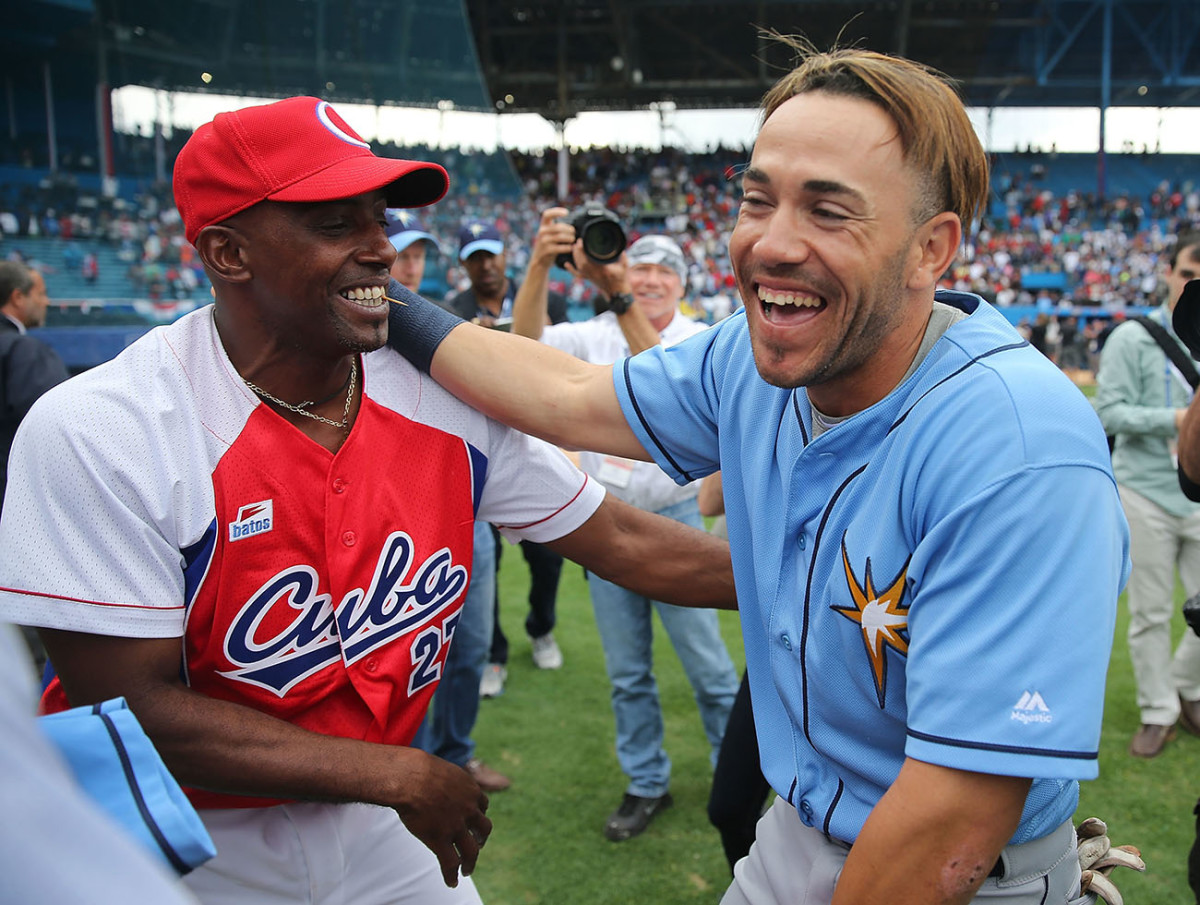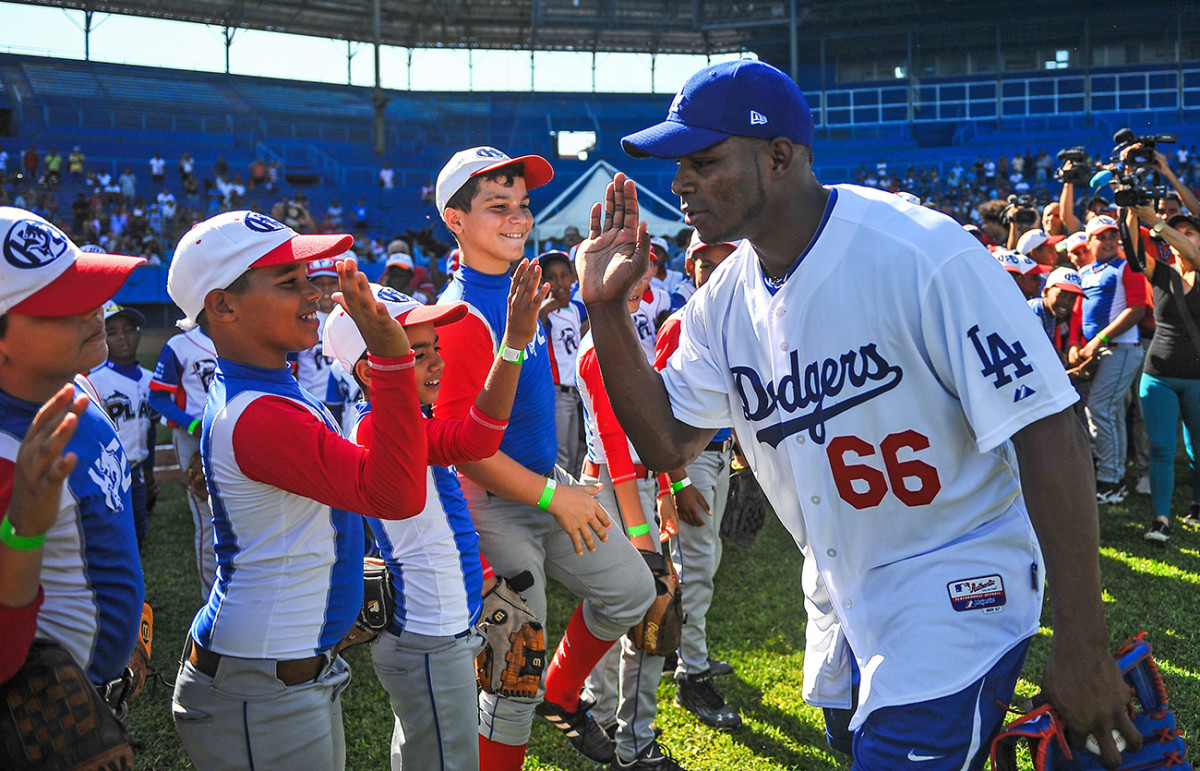Talking Cuban Baseball at SABR’s Annual Convention

Last week, the baseball world descended on Miami for the 46th annual SABR Convention. The city is home to the Marlins, of course. But it’s where one of the largest Latin American — and Cuban — populations in the United States resides. So, naturally, one of the focuses of the convention was the role of those groups in baseball.
Many notable Latin Americans appeared on panels, including former White Sox and Marlins manager and current ESPN Deportes analyst Ozzie Guillen, Marlins President of Baseball Operations Michael Hill, and journalist Reynaldo Cruz. Each of them offered their own unique take on Latin American baseball and stated their opinions on a range of topics.
But one of the biggest issues discussed was how the normalization of relations between Cuba and the United States will affect Major League Baseball.
Havana, the capital of Cuba, is located 228 miles south of Miami. But Cuba and the U.S. have been enemies for more than 50 years. That began to change in December 2014. President Barack Obama and Cuban President Raul Castro announced that they would restore normal diplomatic ties. This flipped an American policy in place since the early 1960s that prevented citizens from traveling to Cuba and cut Cuba off economically from the United States. There are still pieces of the original policy in place — there is still an embargo that keeps Americans from conducting trade and business with Cuba. But the easing of tensions between the nations has accelerated in the last two years.
This normalization is a big deal, and it has already impacted Major League Baseball.
During Spring Training, the Tampa Bay Rays played in Havana against the Cuban national team. The March 22 exhibition game was attend by 55,000 fans and numerous dignitaries from both the U.S. and Cuba, including Presidents Obama and Castro. (Tampa Bay won, 4-1.)

The bigger impact is still to come — and it will be on the players.
In the past, if a Cuban player wanted to join a major league team the player had to defect — which means leaving one country for another because of political reasons. And then in order for a team to even talk to a player, that player needs to establish residency in another country.
Now, though, there are signs that the process might become easier. And legal.
Hill said that he’s looking forward to the changes but isn't sure how it will work out yet. "I think it's still to be seen. Obviously baseball takes its direction from the government, but as soon as it is open, we're excited,” Hill said. “We're in close proximity to the island, and hopefully that means a nice opportunity for us to secure some tremendous talent.”
"It's such a global game,” he continued. “Our game touches so many parts of the world. We're in Asia, we're growing the game in Europe. To have the island where baseball's such a part of their culture I think is natural, and I'm looking forward to the time when it happens."
Cruz had his own unique take on the situation. He had got in trouble with Cuban authorities for writing about the truth of what goes on in the country.
"When the Tampa Bay Rays were in Havana, Major League Baseball held a press conference and they said that the process was going to be long,” he said. “One of the things that bothered me was that they didn't allow some people to ask 'Where are you right now? Where are the conversations?' "

But more than the questions he still has about this process, Cruz thinks there’s another issue to consider.
“Right now, the talent source in Cuba is not very good because many players have defected,” Cruz said. “Last year, 150 [players] came to the U.S. or to the Dominican Republic or to Mexico or to other countries.”
“I think it's going to be not only long in terms of how things will be worked out, he adds, “but also difficult for players to be signed because right now that talent source is very low."
Guillen reiterated many of the points made by other panelists. But, in the end, he’s confident that a more normal relationship between America and Cuba is what’s best for everyone.
"I think it's going to make it easier for Cuban players and Cuban citizens,” Guillen said. “It's a great opportunity for Cuban players to come to this country and perform. I think it's going to be great for baseball in the United States, and also be great for baseball in Cuba."
Photos: Rob Tringali/MLB Photos via Getty Images (Cuban player), Joe Raedle/Getty Images (Cuba/Rays), Yamil Lage/AFP/Getty Images (Puig)
